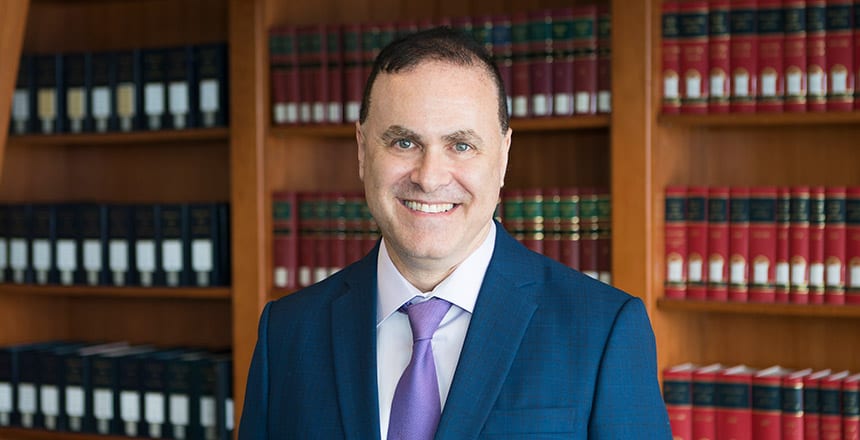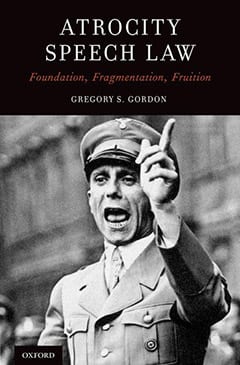
 Through his work as a Department of Justice and United Nations prosecutor and adviser in relation to atrocities in Nazi-occupied Europe, Rwanda, Sierra Leone, Cambodia, and Bosnia, Gregory Gordon ’90 became increasingly convinced that words can kill.
Through his work as a Department of Justice and United Nations prosecutor and adviser in relation to atrocities in Nazi-occupied Europe, Rwanda, Sierra Leone, Cambodia, and Bosnia, Gregory Gordon ’90 became increasingly convinced that words can kill.
“There’s a relationship between incendiary rhetoric and mass crimes,” says Gordon, an associate dean and law professor at The Chinese University of Hong Kong. “Dehumanization, cultivated through hate speech, permits neighbors to kill neighbors.”
 His new book from Oxford University Press, Atrocity Speech Law, examines the history of and jurisprudence governing the relationship between hate speech and international crimes. Gordon finds troubling incoherence within this area of the law but proposes an innovative solution: a “Unified Liability Theory” that would link all qualifying speech offenses to all atrocity crimes. Currently, for example, “incitement” is limited to genocide, but he would have it cover war crimes and crimes against humanity.
His new book from Oxford University Press, Atrocity Speech Law, examines the history of and jurisprudence governing the relationship between hate speech and international crimes. Gordon finds troubling incoherence within this area of the law but proposes an innovative solution: a “Unified Liability Theory” that would link all qualifying speech offenses to all atrocity crimes. Currently, for example, “incitement” is limited to genocide, but he would have it cover war crimes and crimes against humanity.
An expert on international criminal prosecution, Gordon has appeared on major media outlets worldwide, including CNN and the BBC, and lectured in such venues as the United Nations and the International Criminal Court. He has also trained prosecutors in Ethiopia, Cambodia, and Bosnia.
“My research was most disturbing at the individual level,” Gordon says. “The German housewife, poisoned by Nazi propaganda, who took home a group of terrified Jewish children escaping a death transport, cared for them, then murdered them.”
Despite such harrowing accounts, Gordon laments that “the relevant law has been formulated myopically and applied inconsistently.”
—Andrew Cohen